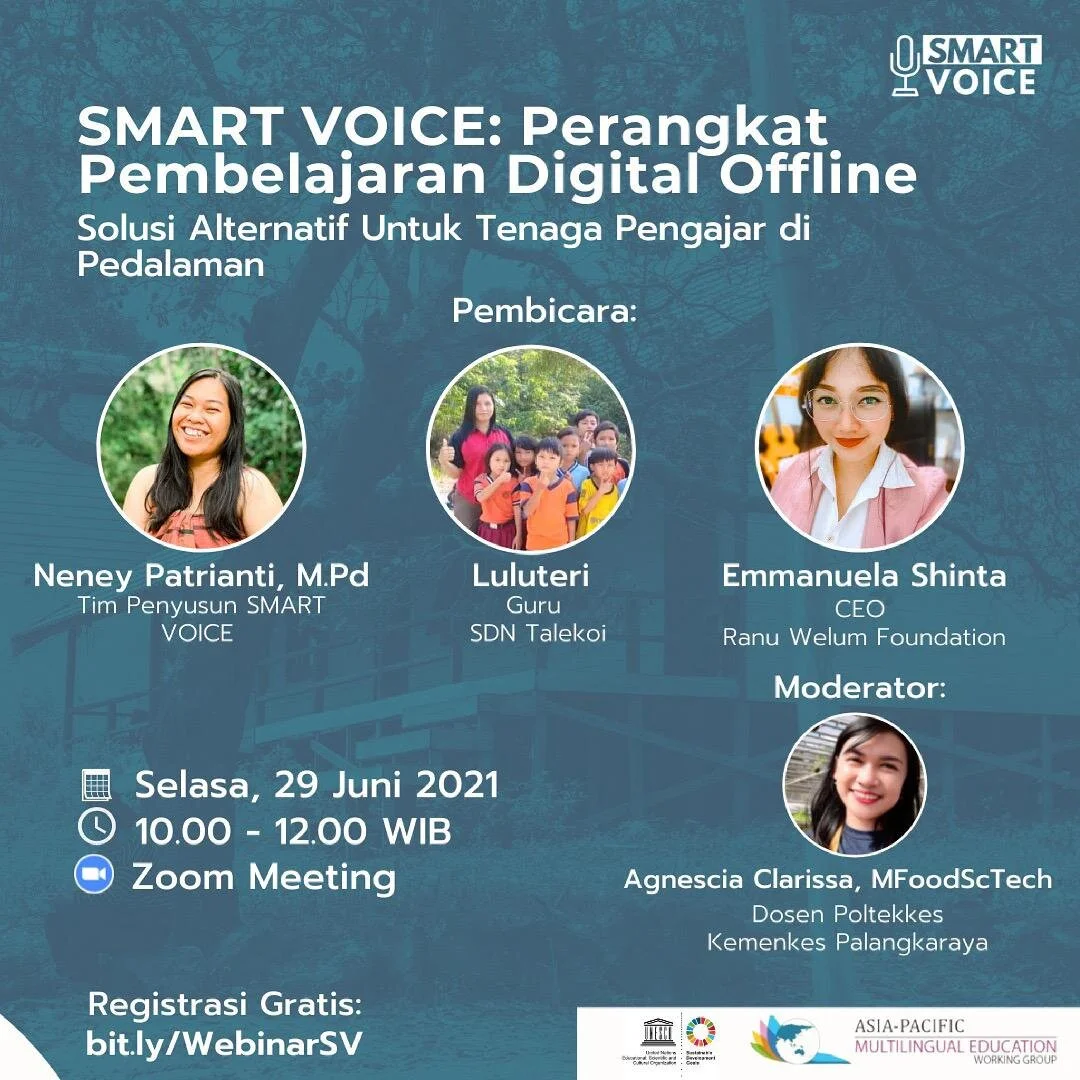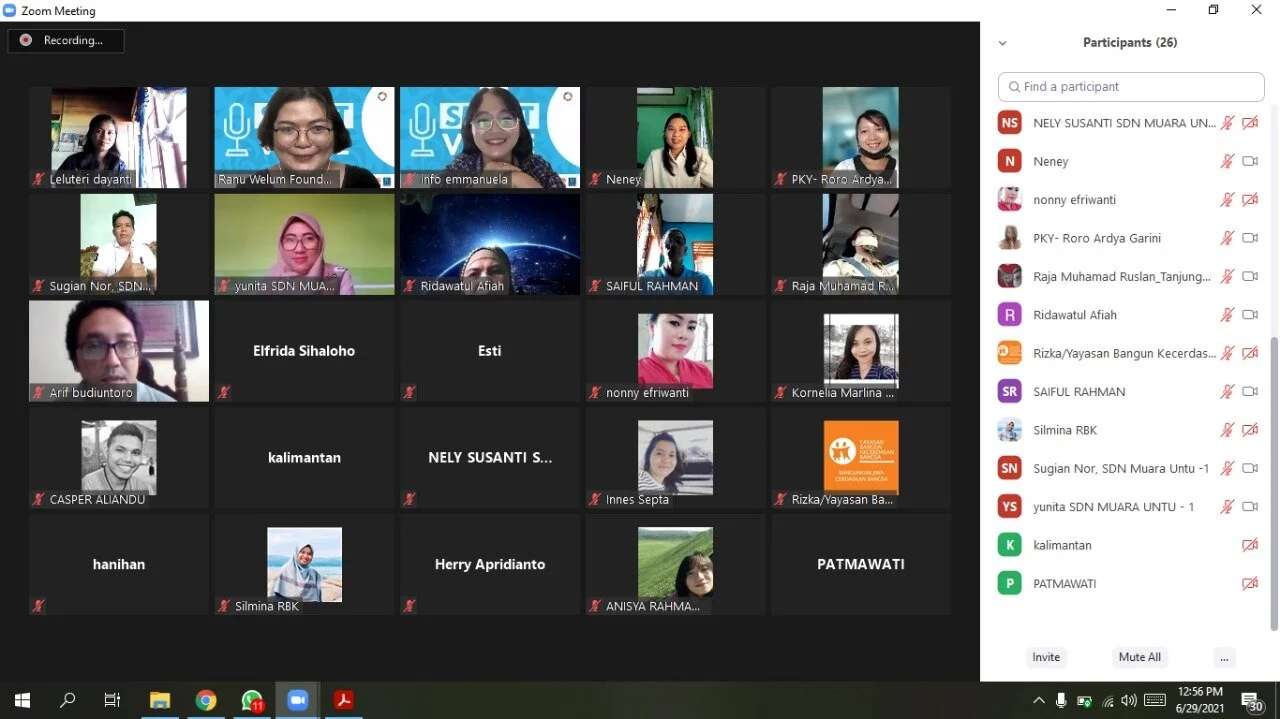PALANGKARAYA - On 29th June 2021, Ranu Welum Foundation held a webinar entitled “SMART VOICE: Digital Offline Learning Kit (Alternative Solution For Teachers in Remote Areas)”. This webinar is a follow-up to the Smart Voice project supported by AIYP and UNESCO which have been presented in regional and international level.
This webinar was led by Agnescia Clarissa, a nutrition lecturer and a University of Brisbane postgraduate. There were three speakers on this webinar; Emmanuela Shinta, the CEO and founder of Ranu Welum Foundation; Neney Patrianti, English Education Postgraduate and the project officer of SMART VOICE; the guest speaker Leluteri Dayanti, one of the teachers of SDN Talekoi who has been implementing the used of Smart Voice.
This webinar was joined by participants which consisted of mostly educators, education activists, education foundations, local government and the last but not least’s teachers from remote areas who were enthusiasts to know more about this learning kit. There were sixty-three registrants from all across Indonesia (Central Kalimantan, West Kalimatan, Jabodetabek, East and Central Java, Bandar Lampung, Sulawesi Tenggara, Subang, NTT, Kepulauan Riau, Jayapura and beyond such as Taipei and Malaysia.
It started with the screening of film KAHARAPEN, a documentary film produced by Ranu Welum Media in which contains the story of SMART VOICE. The first presentation was from Emmanuela Shinta who talked about how the COVID-19 pandemic poses new challenges for the world of education, especially in remote areas that do not have internet access and privilege to own high-tech gadgets. She introduced Smart Voice as a low-tech alternative solution and described how it works and solves the problems on the ground. Then, Ms. Luluteri, teacher from Talekoi then told a personal story about her experiences and challenges as a teacher during the pandemic. She also highlighted that in remote areas, the economic situation of parents during the pandemic is only enough for everyday life. SMART VOICE has made it easier for children to understand assignments, and parents can also help children more easily and don't have to buy quotas. Last presentation was from Neney Patrianti, M.Pd that described in details how the module book and sound recording modules were made and can be curated according to the area and local wisdom of each region. She emphasized that even if the module books were created by the teachers, it still has to be based on the curriculum. Last section was Q&A where participants asked some questions.
There was a huge interest expressed by the participants toward Smart Voice learning kit. One important outcome from the webinar was the idea to produce another Manual Kit for teachers which has instructions on how to create their own Smart Voice. Therefore, we hope that other remote areas in Indonesia and even outside Indonesia can use this concept in the learning process. We believe that access to quality education is the absolute right of every child in the nation wherever they are.


